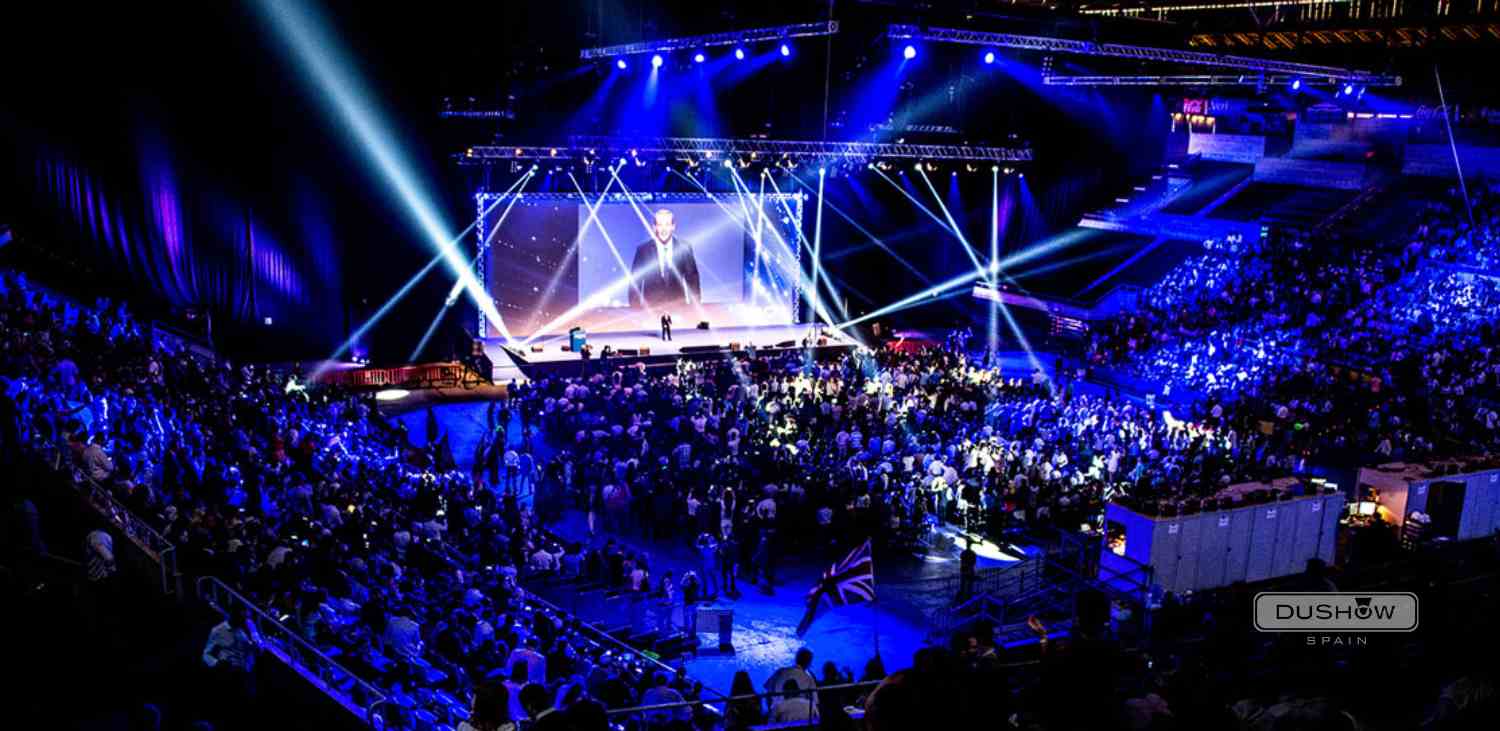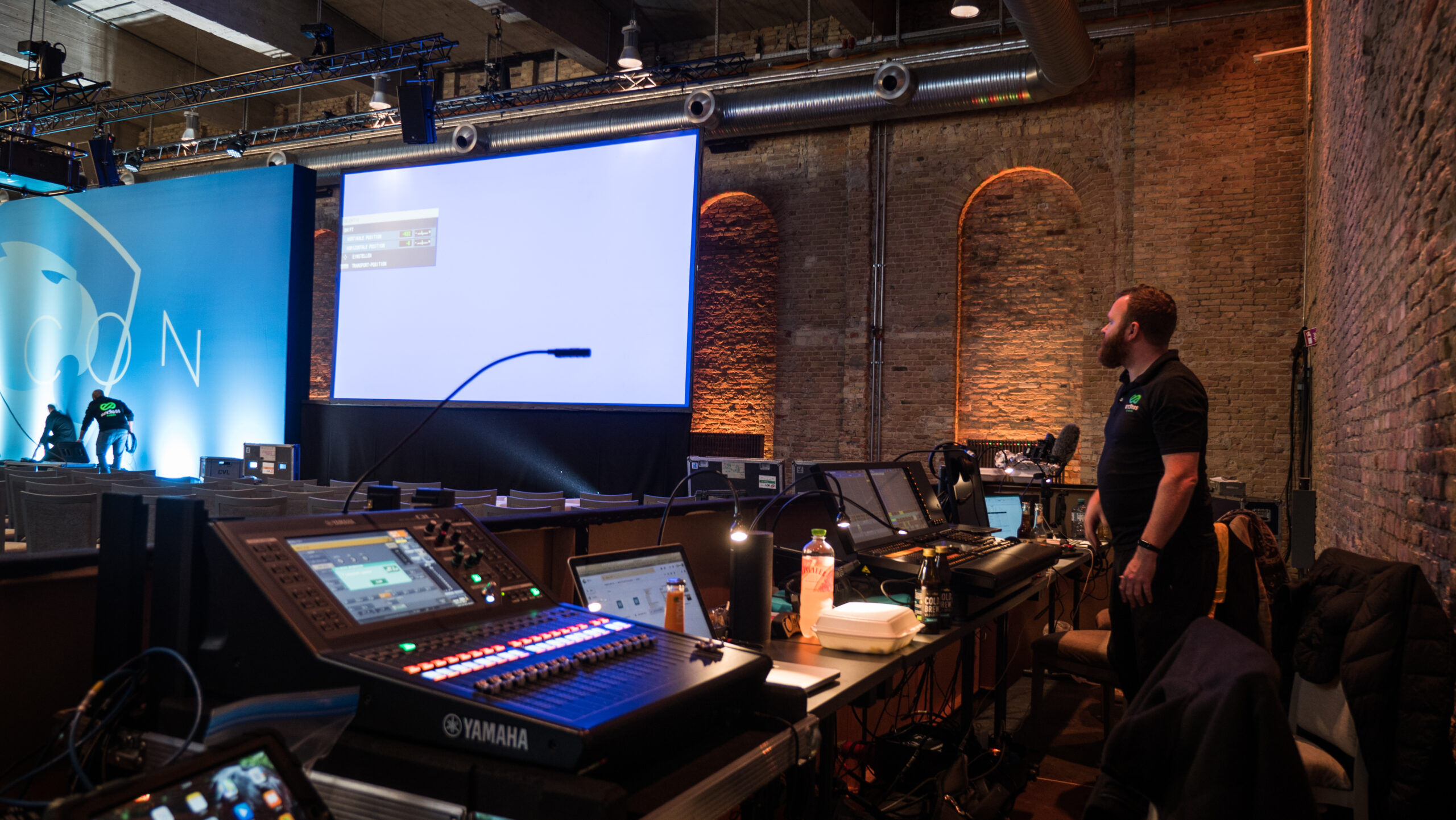Turn events into marketing powerhouses with event production charlotte
Just How Event Production Functions: A Comprehensive Check Out the Refine
Event production is a complicated and organized process that requires careful preparation and implementation. It begins with establishing clear objectives and understanding the target market. Each action, from budgeting to location choice, plays a vital role in ensuring success. As the procedure unfolds, different aspects have to straighten effortlessly. Yet, the nuances of this elaborate procedure usually go undetected. What are the vital phases that add to a remarkable event?

The Initial Planning Stage
When starting on event production, careful planning is necessary to ensure an effective outcome. The initial drawing board acts as the foundation for all subsequent efforts. Throughout this stage, event manufacturers must define the event's purpose and objectives plainly. Recognizing the target market aids customize the experience and messaging, assuring relevance and engagement.Producers must also think about the event format, whether it be in-person, virtual, or crossbreed, as this will certainly influence different logistical elements. Selecting an ideal date and place is critical, as it impacts access and availability.Furthermore, constructing a trusted team is essential for splitting obligations and simplifying interaction. Developing a timeline with turning points assurances all tasks are finished on timetable. This stage involves comprehensive research study, consisting of identifying possible challenges and designing methods to reduce risks. Inevitably, a well-structured first preparation stage sets the tone for an effective event production journey.

Budgeting and Resource Allocation
In event production, efficient budgeting and source allowance are crucial for success - event production charlotte. Developing financial criteria sets the structure for all succeeding decisions, while resource distribution approaches assure that every element of the event is adequately supported. With each other, these elements assist preserve control over expenditures and maximize the use of offered sources
Establishing Financial Parameters
Developing monetary criteria is important to the success of any event production, as it sets the foundation for effective budgeting and resource allocation. This process starts with defining the general spending plan, which includes all facets of the event, including place prices, event catering, and marketing. By identifying available funds, event coordinators can prioritize expenses and allot resources as necessary. Furthermore, it is important to perform thorough marketing research to expect potential expenses and determine financing resources, such as sponsorships or ticket sales. Developing clear economic parameters also aids in risk monitoring, allowing planners to reserve contingency funds for unexpected expenses. Ultimately, a well-defined budget works as a roadmap, directing the event production team towards achieving their goals while maintaining financial control.
Source Circulation Approaches
Reliable source circulation methods are necessary for making best use of the influence of an occasion while adhering to budget constraints. Successful event production requires a careful method to budgeting and resource allocation. Organizers need to prioritize important elements such as place, food catering, and innovation, guaranteeing that funds are allocated to locations that improve attendee experience. A thorough spending plan must describe anticipated costs and identify locations for potential price savings, such as working out with vendors or exploring sponsorship possibilities. Additionally, tracking expenditures throughout the planning procedure aids stop overspending. By utilizing critical resource circulation, event manufacturers can deliver a memorable experience while preserving fiscal obligation, ultimately adding to the general success of the event.
Location Choice and Logistics
Choosing the best place is necessary to the success of any type of event, as it sets the phase for the general experience. Location option entails reviewing numerous variables, including ability, ease of access, and place. Coordinators must think about the target audience and the nature of the event, making sure the venue aligns with the event's goals.Logistics play a considerable role in this procedure, involving setups for seats, audiovisual devices, and providing services. An appropriate place should facilitate smooth flow for guests and team, improving engagement.Additionally, assessing possible places for services like auto parking, bathrooms, and emergency situation leaves is essential for security and comfort. The timeline for protecting the location is likewise important, as preferred locations might schedule promptly - event production charlotte. Consequently, comprehensive planning and prompt implementation can inevitably contribute to a seamless event experience, making location option and logistics basic components of effective event production
Imaginative Principle Development
While the venue establishes the physical phase, creative concept advancement shapes the event's identity and story. This process begins with identifying the event's purpose and target market, allowing event producers to create an engaging style that resonates with participants. Brainstorming sessions typically consist of diverse viewpoints, fostering ingenious concepts that align with the event's goals.Once a style is established, aesthetic components such as shade schemes, signs, and design are designed to improve the total atmosphere. Storytelling methods might additionally be incorporated to produce an interesting journey for participants, ensuring a memorable experience. In addition, considerations concerning amusement, tasks, and interactive elements are lined up with the chosen principle, enhancing the motif throughout the event.Ultimately, reliable creative idea development warranties that every aspect of the event works cohesively, leaving a long lasting impression on guests and satisfying the event's purposes. This fundamental work lays the groundwork for succeeding preparation and execution phases.
Collaborating With Vendors and Vendors
Successful event production pivots on efficient partnership with suppliers and providers. Choosing reputable companions, negotiating contracts successfully, and making certain timely distributions are crucial steps in this procedure. Each of these aspects adds substantially to the general success and smooth execution of an event.
Choosing Reliable Allies
How can event organizers ensure a seamless production experience? Picking dependable partners is important in achieving this goal. Event planners need to carry out extensive study to identify suppliers and vendors with a proven track document of quality. This includes inspecting referrals, reviewing profiles, and assessing customer feedback. Coordinators must focus on companions that show professionalism and trust, prompt interaction, and a readiness to team up. Building strong connections cultivates count on and allows fast analytic during the event. Furthermore, it is beneficial to select regional suppliers who understand the venue and local logistics. Inevitably, an effective event rests on the harmony between planners and their partners, ensuring that every facet of production runs efficiently and effectively.
Bargaining Contracts Effectively
Reliable negotiation of agreements is a crucial action in the partnership between event organizers and their vendors and providers. This procedure includes clear communication of assumptions, deliverables, and timelines. Coordinators look here need to conduct thorough research on market rates and industry requirements to develop a standard for negotiations. It is necessary to produce a joint environment, motivating open discussion about terms, pricing, and possible contingencies. Coordinators need to likewise prioritize comprehending my link the supplier's capacities and constraints to straighten their demands successfully. Versatility can result in mutually useful agreements, fostering long-lasting connections. Crafting distinct agreements that include particular efficiency metrics can help guarantee liability, eventually causing effective event implementation and fulfillment for all parties involved.
Making Sure Timely Distributions
Timely shipments are crucial for the smooth execution of any event, requiring persistent collaboration in between organizers and their vendors and distributors. Effective communication is essential, as it assists develop clear assumptions regarding shipment schedules, quantities, and certain needs. Planners often create comprehensive timelines to describe important landmarks, ensuring all celebrations remain straightened throughout the process. Normal check-ins with suppliers can assist identify potential hold-ups early, enabling positive solutions. Additionally, constructing solid relationships with trustworthy vendors cultivates trust and responsibility, which can lead to better solution and prioritization. By focusing on these joint efforts, planners can minimize disruptions, therefore enhancing the total performance of event production and making sure that all necessary products and services arrive as prepared.
Marketing and Promotion Approaches
While organizing an event, the success of advertising and promo methods can considerably affect participation and engagement. Efficient strategies frequently consist of a combination of electronic advertising and marketing, typical marketing, and grassroots outreach. Utilizing social networks platforms allows for real-time communication and targeted marketing, getting to certain demographics properly. Email marketing projects can further engage prospective attendees with individualized content and reminders.Collaborations with influencers or sector leaders can also improve trustworthiness and broaden reach. Producing interesting web content, such as videos or blog sites, assists to produce buzz and suffer rate of interest leading up to the event. In addition, leveraging early-bird discount rates and exclusive perks can incentivize ticket purchases.Promoting with standard channels, such as posters or local media, remains relevant, specifically in community-focused occasions. A complete method that integrates several approaches warranties optimum exposure and engagement, ultimately adding to the event's success and the development of a memorable experience Full Article for guests.
On-Site Implementation and Monitoring
On-site implementation and management are crucial parts that figure out the general success of an occasion. Efficient sychronisation during the event guarantees that all elements straighten with the intended program. Event managers supervise logistics, including supplier sychronisation, tools setup, and guest solutions. Keeping track of timelines and resolving any type of unforeseen concerns are fundamental for keeping a smooth experience.The team plays a substantial function, as qualified personnel are accountable for different tasks such as enrollment, details dissemination, and technical assistance. Interaction among staff member is important; it promotes a collective atmosphere and makes it possible for quick resolution of challenges.Additionally, safety procedures should be abided by, guarding the health of all participants. Post-event examinations are also part of on-site administration, providing understandings for future renovations. By concentrating on these elements, event producers can create memorable experiences that satisfy or go beyond participant assumptions while attaining the event's purposes.
Regularly Asked Inquiries
Exactly how Do I Pick the Right Event Motif?
Picking the right event motif entails thinking about the target audience, event objective, and location. Researching existing patterns and collecting input from stakeholders can likewise inspire innovative ideas that reverberate and produce a memorable experience.

What Are Usual Blunders in Event Production?
Usual blunders in event production commonly consist of insufficient planning, poor interaction amongst employee, spending plan mismanagement, ignoring to consider the audience's demands, and stopping working to conduct an extensive post-event examination for future renovations.
Exactly How Can I Gauge Event Success?
To gauge event success, one can evaluate attendee fulfillment, engagement degrees, budget plan adherence, and post-event feedback. Trick performance indications, such as ticket sales and social networks interactions, additionally offer beneficial insights right into general effectiveness.
What Should I Do if It Drizzles on the Event Day?
In the event of rainfall on the day, the organizer must implement backup plans, such as protecting tents or moving tasks indoors. Communication with attendees about modifications is necessary to ensure a smooth experience despite weather condition obstacles.
How Can I Make Certain Attendee Involvement During the Event?
